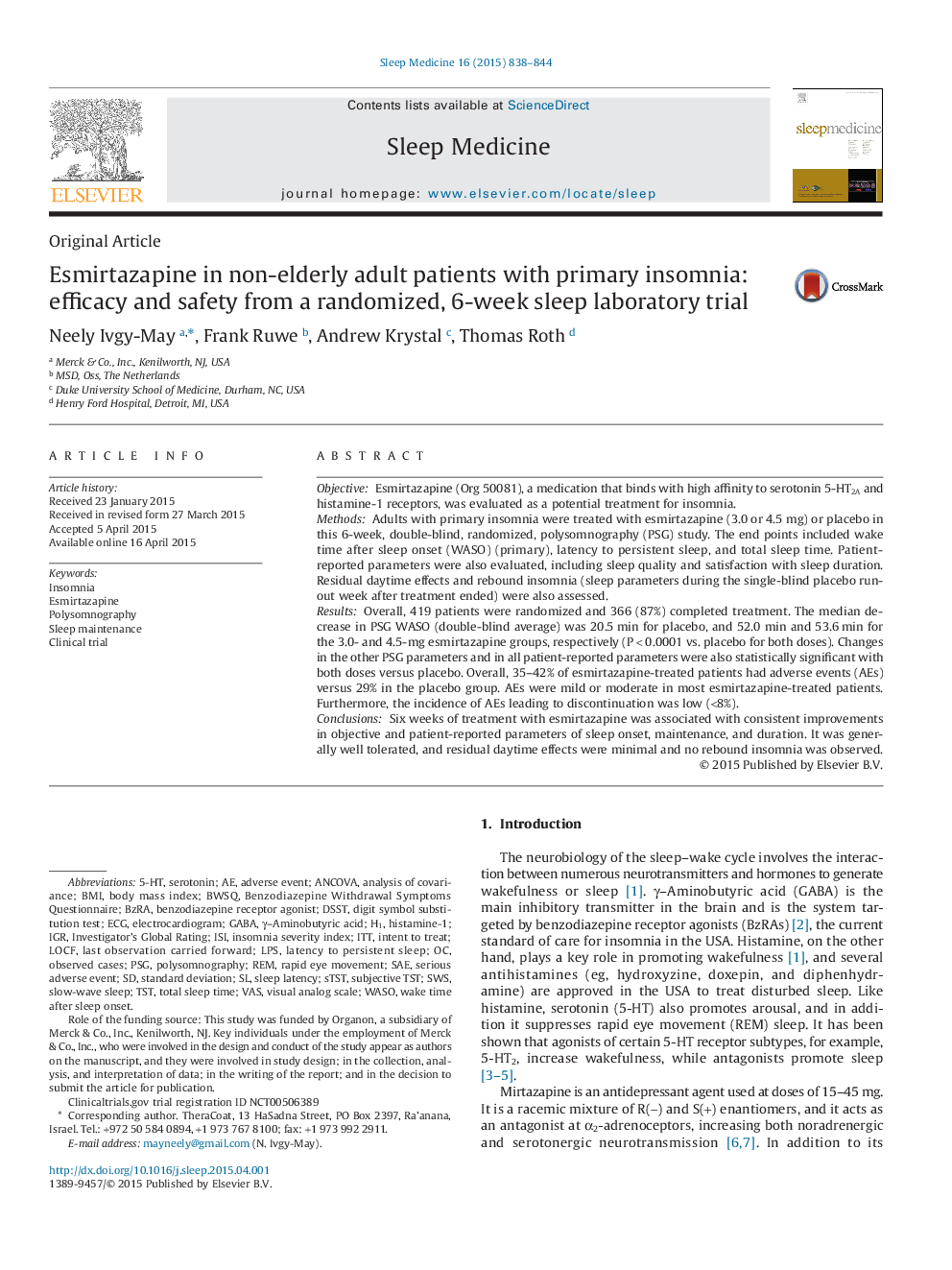| کد مقاله | کد نشریه | سال انتشار | مقاله انگلیسی | نسخه تمام متن |
|---|---|---|---|---|
| 6060675 | 1200235 | 2015 | 7 صفحه PDF | دانلود رایگان |
- This sleep laboratory trial evaluated esmirtazapine versus placebo in primary insomnia.
- Esmirtazapine significantly improved sleep onset, maintenance, and duration.
- There was no evidence of rebound insomnia after discontinuation of esmirtazapine.
- Esmirtazapine was well tolerated;â<â8% of patients withdrew due to adverse events.
ObjectiveEsmirtazapine (Org 50081), a medication that binds with high affinity to serotonin 5-HT2A and histamine-1 receptors, was evaluated as a potential treatment for insomnia.MethodsAdults with primary insomnia were treated with esmirtazapine (3.0 or 4.5 mg) or placebo in this 6-week, double-blind, randomized, polysomnography (PSG) study. The end points included wake time after sleep onset (WASO) (primary), latency to persistent sleep, and total sleep time. Patient-reported parameters were also evaluated, including sleep quality and satisfaction with sleep duration. Residual daytime effects and rebound insomnia (sleep parameters during the single-blind placebo run-out week after treatment ended) were also assessed.ResultsOverall, 419 patients were randomized and 366 (87%) completed treatment. The median decrease in PSG WASO (double-blind average) was 20.5âmin for placebo, and 52.0 min and 53.6âmin for the 3.0- and 4.5-mg esmirtazapine groups, respectively (Pâ<â0.0001 vs. placebo for both doses). Changes in the other PSG parameters and in all patient-reported parameters were also statistically significant with both doses versus placebo. Overall, 35-42% of esmirtazapine-treated patients had adverse events (AEs) versus 29% in the placebo group. AEs were mild or moderate in most esmirtazapine-treated patients. Furthermore, the incidence of AEs leading to discontinuation was low (<8%).ConclusionsSix weeks of treatment with esmirtazapine was associated with consistent improvements in objective and patient-reported parameters of sleep onset, maintenance, and duration. It was generally well tolerated, and residual daytime effects were minimal and no rebound insomnia was observed.
Journal: Sleep Medicine - Volume 16, Issue 7, July 2015, Pages 838-844
